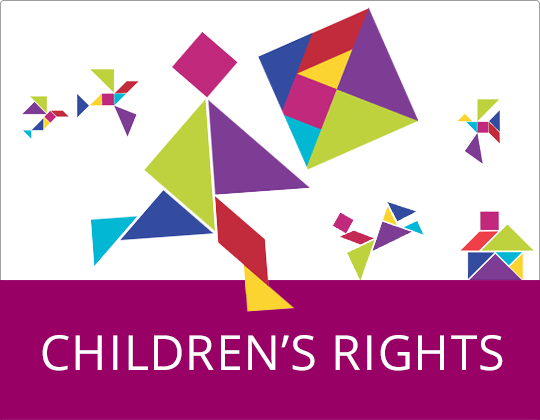National human rights institutions

Two umbrella organisations of national human rights institutions hold the participant status with the Lanzarote Committee:
- European Network of Ombudspersons for Children (ENOC) and
- European Network of National Human Rights Institutions (ENNHRI).
National human rights institutions and other national mechanisms, depending on their membership, are encouraged to contact ENOC or ENNHRI to voice their views and recommendations where relevant to the work of the Lanzarote Committee.
National human rights institutions’ role in the promotion and implementation of the Lanzarote Convention
In line with the Lanzarote Convention, one of the tasks of the independent national institutions designated for the promotion and protection of the rights of the child should be to raise public awareness of sexual exploitation and abuse of children and their long-term negative effects, as well as to provide education and training. In order to support this mandate, tools and resources produced by the Council of Europe to prevent sexual exploitation and sexual abuse of children are available for use and dissemination in several languages.
In this context, national human rights institutions are encouraged to mark the annual Day on the Protection of Children against Sexual Exploitation and Sexual Abuse (#EndChildSexualAbuseDay) celebrated on 18 November by carrying out dedicated awareness-raising activities, promoting and disseminating any materials prepared in connection with the Day.
National human rights institutions’ role in supporting the monitoring work of the Lanzarote Committee
- Providing information to the Lanzarote Committee
The mandate of national human rights institutions encompasses a wide range of different functions such as advisory, advocacy, monitoring and quasi-judicial. Accordingly, national human rights institutions designated to promote and protect children’s rights play a crucial role in supporting and monitoring the implementation of the Lanzarote Convention at the national level.
National human rights institutions may submit replies to thematic monitoring questionnaires used to evaluate the implementation of the Lanzarote Convention by State Parties and provide their comments on State Parties’ replies published on the monitoring page after the deadline for their submission. Replies and comments shall be submitted to the Secretariat ([email protected]) in accordance with the deadlines usually announced in the introductory part of monitoring questionnaires as well as separately on the Children’s Rights newsroom page. They should be accompanied by a clear indication of whether the information submitted is public or confidential. The involvement of children in the drafting of the replies is encouraged.
For more information on the past and ongoing monitoring rounds, please consult the monitoring page.
- Promoting the Lanzarote Committee’s implementation reports and requesting a follow-up procedure
National human rights institutions are welcome to use the Committee’s implementation reports adopted as a result of each thematic monitoring round and the recommendations contained therein in their work to encourage their governments to improve their implementation of the Lanzarote Convention.
In addition, national human rights institutions may draw the attention of the Lanzarote Committee to a State Party’s apparent failure to implement one or more recommendations made in an implementation report and request follow-up action by sending a message to [email protected].



